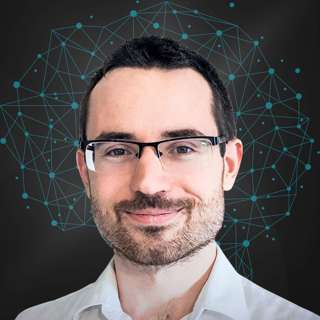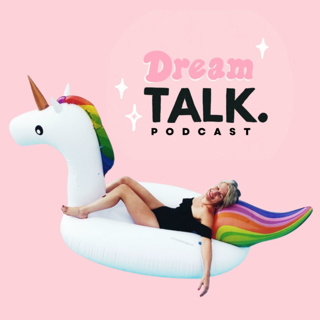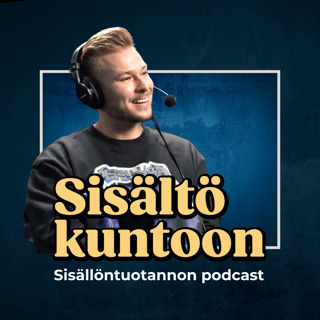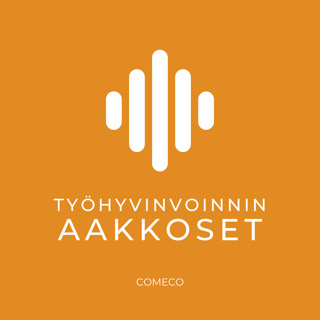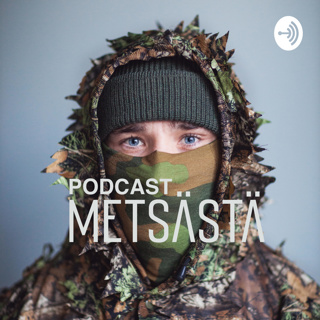
#140 Classic episode – Bear Braumoeller on the case that war isn’t in decline
Is war in long-term decline? Steven Pinker's The Better Angels of Our Nature brought this previously obscure academic question to the centre of public debate, and pointed to rates of death in war to argue energetically that war is on the way out.But that idea divides war scholars and statisticians, and so Better Angels has prompted a spirited debate, with datasets and statistical analyses exchanged back and forth year after year. The lack of consensus has left a somewhat bewildered public (including host Rob Wiblin) unsure quite what to believe.Today's guest, professor in political science Bear Braumoeller, is one of the scholars who believes we lack convincing evidence that warlikeness is in long-term decline. He collected the analysis that led him to that conclusion in his 2019 book, Only the Dead: The Persistence of War in the Modern Age.Rebroadcast: this episode was originally released in November 2022.Links to learn more, highlights, and full transcript.The question is of great practical importance. The US and PRC are entering a period of renewed great power competition, with Taiwan as a potential trigger for war, and Russia is once more invading and attempting to annex the territory of its neighbours.If war has been going out of fashion since the start of the Enlightenment, we might console ourselves that however nerve-wracking these present circumstances may feel, modern culture will throw up powerful barriers to another world war. But if we're as war-prone as we ever have been, one need only inspect the record of the 20th century to recoil in horror at what might await us in the 21st.Bear argues that the second reaction is the appropriate one. The world has gone up in flames many times through history, with roughly 0.5% of the population dying in the Napoleonic Wars, 1% in World War I, 3% in World War II, and perhaps 10% during the Mongol conquests. And with no reason to think similar catastrophes are any less likely today, complacency could lead us to sleepwalk into disaster.He gets to this conclusion primarily by analysing the datasets of the decades-old Correlates of War project, which aspires to track all interstate conflicts and battlefield deaths since 1815. In Only the Dead, he chops up and inspects this data dozens of different ways, to test if there are any shifts over time which seem larger than what could be explained by chance variation alone.In a nutshell, Bear simply finds no general trend in either direction from 1815 through today. It seems like, as philosopher George Santayana lamented in 1922, "only the dead have seen the end of war."In today's conversation, Bear and Rob discuss all of the above in more detail than even a usual 80,000 Hours podcast episode, as well as:Why haven't modern ideas about the immorality of violence led to the decline of war, when it's such a natural thing to expect?What would Bear's critics say in response to all this?What do the optimists get right?How does one do proper statistical tests for events that are clumped together, like war deaths?Why are deaths in war so concentrated in a handful of the most extreme events?Did the ideas of the Enlightenment promote nonviolence, on balance?Were early states more or less violent than groups of hunter-gatherers?If Bear is right, what can be done?How did the 'Concert of Europe' or 'Bismarckian system' maintain peace in the 19th century?Which wars are remarkable but largely unknown?Chapters:Cold open (00:00:00)Rob's intro (00:01:01)The interview begins (00:05:37)Only the Dead (00:08:33)The Enlightenment (00:18:50)Democratic peace theory (00:28:26)Is religion a key driver of war? (00:31:32)International orders (00:35:14)The Concert of Europe (00:44:21)The Bismarckian system (00:55:49)The current international order (01:00:22)The Better Angels of Our Nature (01:19:36)War datasets (01:34:09)Seeing patterns in data where none exist (01:47:38)Change-point analysis (01:51:39)Rates of violent death throughout history (01:56:39)War initiation (02:05:02)Escalation (02:20:03)Getting massively different results from the same data (02:30:45)How worried we should be (02:36:13)Most likely ways Only the Dead is wrong (02:38:31)Astonishing smaller wars (02:42:45)Rob’s outro (02:47:13)Producer: Keiran HarrisAudio mastering: Ryan KesslerTranscriptions: Katy Moore
8 Tammi 2h 48min

2024 Highlightapalooza! (The best of The 80,000 Hours Podcast this year)
"A shameless recycling of existing content to drive additional audience engagement on the cheap… or the single best, most valuable, and most insight-dense episode we put out in the entire year, depending on how you want to look at it." — Rob WiblinIt’s that magical time of year once again — highlightapalooza! Stick around for one top bit from each episode, including:How to use the microphone on someone’s mobile phone to figure out what password they’re typing into their laptopWhy mercilessly driving the New World screwworm to extinction could be the most compassionate thing humanity has ever doneWhy evolutionary psychology doesn’t support a cynical view of human nature but actually explains why so many of us are intensely sensitive to the harms we cause to othersHow superforecasters and domain experts seem to disagree so much about AI risk, but when you zoom in it’s mostly a disagreement about timingWhy the sceptics are wrong and you will want to use robot nannies to take care of your kids — and also why despite having big worries about the development of AGI, Carl Shulman is strongly against efforts to pause AI research todayHow much of the gender pay gap is due to direct pay discrimination vs other factorsHow cleaner wrasse fish blow the mirror test out of the waterWhy effective altruism may be too big a tent to work wellHow we could best motivate pharma companies to test existing drugs to see if they help cure other diseases — something they currently have no reason to bother with…as well as 27 other top observations and arguments from the past year of the show.Check out the full transcript and episode links on the 80,000 Hours website.Remember that all of these clips come from the 20-minute highlight reels we make for every episode, which are released on our sister feed, 80k After Hours. So if you’re struggling to keep up with our regularly scheduled entertainment, you can still get the best parts of our conversations there.It has been a hell of a year, and we can only imagine next year is going to be even weirder — but Luisa and Rob will be here to keep you company as Earth hurtles through the galaxy to a fate as yet unknown.Enjoy, and look forward to speaking with you in 2025!Chapters:Rob's intro (00:00:00)Randy Nesse on the origins of morality and the problem of simplistic selfish-gene thinking (00:02:11)Hugo Mercier on the evolutionary argument against humans being gullible (00:07:17)Meghan Barrett on the likelihood of insect sentience (00:11:26)Sébastien Moro on the mirror test triumph of cleaner wrasses (00:14:47)Sella Nevo on side-channel attacks (00:19:32)Zvi Mowshowitz on AI sleeper agents (00:22:59)Zach Weinersmith on why space settlement (probably) won't make us rich (00:29:11)Rachel Glennerster on pull mechanisms to incentivise repurposing of generic drugs (00:35:23)Emily Oster on the impact of kids on women's careers (00:40:29)Carl Shulman on robot nannies (00:45:19)Nathan Labenz on kids and artificial friends (00:50:12)Nathan Calvin on why it's not too early for AI policies (00:54:13)Rose Chan Loui on how control of OpenAI is independently incredibly valuable and requires compensation (00:58:08)Nick Joseph on why he’s a big fan of the responsible scaling policy approach (01:03:11)Sihao Huang on how the US and UK might coordinate with China (01:06:09)Nathan Labenz on better transparency about predicted capabilities (01:10:18)Ezra Karger on what explains forecasters’ disagreements about AI risks (01:15:22)Carl Shulman on why he doesn't support enforced pauses on AI research (01:18:58)Matt Clancy on the omnipresent frictions that might prevent explosive economic growth (01:25:24)Vitalik Buterin on defensive acceleration (01:29:43)Annie Jacobsen on the war games that suggest escalation is inevitable (01:34:59)Nate Silver on whether effective altruism is too big to succeed (01:38:42)Kevin Esvelt on why killing every screwworm would be the best thing humanity ever did (01:42:27)Lewis Bollard on how factory farming is philosophically indefensible (01:46:28)Bob Fischer on how to think about moral weights if you're not a hedonist (01:49:27)Elizabeth Cox on the empirical evidence of the impact of storytelling (01:57:43)Anil Seth on how our brain interprets reality (02:01:03)Eric Schwitzgebel on whether consciousness can be nested (02:04:53)Jonathan Birch on our overconfidence around disorders of consciousness (02:10:23)Peter Godfrey-Smith on uploads of ourselves (02:14:34)Laura Deming on surprising things that make mice live longer (02:21:17)Venki Ramakrishnan on freezing cells, organs, and bodies (02:24:46)Ken Goldberg on why low fault tolerance makes some skills extra hard to automate in robots (02:29:12)Sarah Eustis-Guthrie on the ups and downs of founding an organisation (02:34:04)Dean Spears on the cost effectiveness of kangaroo mother care (02:38:26)Cameron Meyer Shorb on vaccines for wild animals (02:42:53)Spencer Greenberg on personal principles (02:46:08)Producing and editing: Keiran HarrisAudio engineering: Ben Cordell, Milo McGuire, Simon Monsour, and Dominic ArmstrongVideo editing: Simon MonsourTranscriptions: Katy Moore
27 Joulu 20242h 50min
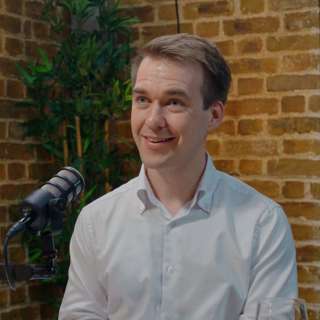
#211 – Sam Bowman on why housing still isn't fixed and what would actually work
Rich countries seem to find it harder and harder to do anything that creates some losers. People who don’t want houses, offices, power stations, trains, subway stations (or whatever) built in their area can usually find some way to block them, even if the benefits to society outweigh the costs 10 or 100 times over.The result of this ‘vetocracy’ has been skyrocketing rent in major cities — not to mention exacerbating homelessness, energy poverty, and a host of other social maladies. This has been known for years but precious little progress has been made. When trains, tunnels, or nuclear reactors are occasionally built, they’re comically expensive and slow compared to 50 years ago. And housing construction in the UK and California has barely increased, remaining stuck at less than half what it was in the ’60s and ’70s.Today’s guest — economist and editor of Works in Progress Sam Bowman — isn’t content to just condemn the Not In My Backyard (NIMBY) mentality behind this stagnation. He wants to actually get a tonne of stuff built, and by that standard the strategy of attacking ‘NIMBYs’ has been an abject failure. They are too politically powerful, and if you try to crush them, sooner or later they crush you.Links to learn more, highlights, video, and full transcript.So, as Sam explains, a different strategy is needed, one that acknowledges that opponents of development are often correct that a given project will make them worse off. But the thing is, in the cases we care about, these modest downsides are outweighed by the enormous benefits to others — who will finally have a place to live, be able to get to work, and have the energy to heat their home.But democracies are majoritarian, so if most existing residents think they’ll be a little worse off if more dwellings are built in their area, it’s no surprise they aren’t getting built. Luckily we already have a simple way to get people to do things they don’t enjoy for the greater good, a strategy that we apply every time someone goes in to work at a job they wouldn’t do for free: compensate them. Sam thinks this idea, which he calls “Coasean democracy,” could create a politically sustainable majority in favour of building and underlies the proposals he thinks have the best chance of success — which he discusses in detail with host Rob Wiblin.Chapters:Cold open (00:00:00)Introducing Sam Bowman (00:00:59)We can’t seem to build anything (00:02:09)Our inability to build is ruining people's lives (00:04:03)Why blocking growth of big cities is terrible for science and invention (00:09:15)It's also worsening inequality, health, fertility, and political polarisation (00:14:36)The UK as the 'limit case' of restrictive planning permission gone mad (00:17:50)We've known this for years. So why almost no progress fixing it? (00:36:34)NIMBYs aren't wrong: they are often harmed by development (00:43:58)Solution #1: Street votes (00:55:37)Are street votes unfair to surrounding areas? (01:08:31)Street votes are coming to the UK — what to expect (01:15:07)Are street votes viable in California, NY, or other countries? (01:19:34)Solution #2: Benefit sharing (01:25:08)Property tax distribution — the most important policy you've never heard of (01:44:29)Solution #3: Opt-outs (01:57:53)How to make these things happen (02:11:19)Let new and old institutions run in parallel until the old one withers (02:18:17)The evil of modern architecture and why beautiful buildings are essential (02:31:58)Northern latitudes need nuclear power — solar won't be enough (02:45:01)Ozempic is still underrated and “the overweight theory of everything” (03:02:30)How has progress studies remained sane while being very online? (03:17:55)Video editing: Simon MonsourAudio engineering: Ben Cordell, Milo McGuire, Simon Monsour, and Dominic ArmstrongTranscriptions: Katy Moore
19 Joulu 20243h 25min
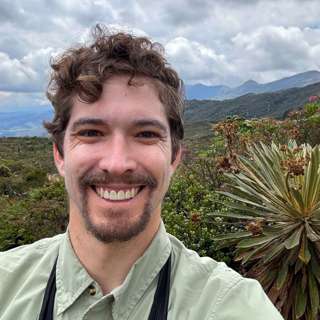
#210 – Cameron Meyer Shorb on dismantling the myth that we can’t do anything to help wild animals
"I really don’t want to give the impression that I think it is easy to make predictable, controlled, safe interventions in wild systems where there are many species interacting. I don’t think it’s easy, but I don’t see any reason to think that it’s impossible. And I think we have been making progress. I think there’s every reason to think that if we continue doing research, both at the theoretical level — How do ecosystems work? What sorts of things are likely to have what sorts of indirect effects? — and then also at the practical level — Is this intervention a good idea? — I really think we’re going to come up with plenty of things that would be helpful to plenty of animals." —Cameron Meyer ShorbIn today’s episode, host Luisa Rodriguez speaks to Cameron Meyer Shorb — executive director of the Wild Animal Initiative — about the cutting-edge research on wild animal welfare.Links to learn more, highlights, and full transcript.They cover:How it’s almost impossible to comprehend the sheer number of wild animals on Earth — and why that makes their potential suffering so important to consider.How bad experiences like disease, parasites, and predation truly are for wild animals — and how we would even begin to study that empirically.The tricky ethical dilemmas in trying to help wild animals without unintended consequences for ecosystems or other potentially sentient beings.Potentially promising interventions to help wild animals — like selective reforestation, vaccines, fire management, and gene drives.Why Cameron thinks the best approach to improving wild animal welfare is to first build a dedicated research field — and how Wild Animal Initiative’s activities support this.The many career paths in science, policy, and technology that could contribute to improving wild animal welfare.And much more.Chapters:Cold open (00:00:00)Luisa's intro (00:01:04)The interview begins (00:03:40)One concrete example of how we might improve wild animal welfare (00:04:04)Why should we care about wild animal suffering? (00:10:00)What’s it like to be a wild animal? (00:19:37)Suffering and death in the wild (00:29:19)Positive, benign, and social experiences (00:51:33)Indicators of welfare (01:01:40)Can we even help wild animals without unintended consequences? (01:13:20)Vaccines for wild animals (01:30:59)Fire management (01:44:20)Gene drive technologies (01:47:42)Common objections and misconceptions about wild animal welfare (01:53:19)Future promising interventions (02:21:58)What’s the long game for wild animal welfare? (02:27:46)Eliminating the biological basis for suffering (02:33:21)Optimising for high-welfare landscapes (02:37:33)Wild Animal Initiative’s work (02:44:11)Careers in wild animal welfare (02:58:13)Work-related guilt and shame (03:12:57)Luisa's outro (03:19:51)Producer: Keiran HarrisAudio engineering: Ben Cordell, Milo McGuire, Simon Monsour, and Dominic ArmstrongContent editing: Luisa Rodriguez, Katy Moore, and Keiran HarrisTranscriptions: Katy Moore
29 Marras 20243h 21min

#209 – Rose Chan Loui on OpenAI’s gambit to ditch its nonprofit
One OpenAI critic calls it “the theft of at least the millennium and quite possibly all of human history.” Are they right?Back in 2015 OpenAI was but a humble nonprofit. That nonprofit started a for-profit, OpenAI LLC, but made sure to retain ownership and control. But that for-profit, having become a tech giant with vast staffing and investment, has grown tired of its shackles and wants to change the deal.Facing off against it stand eight out-gunned and out-numbered part-time volunteers. Can they hope to defend the nonprofit’s interests against the overwhelming profit motives arrayed against them?That’s the question host Rob Wiblin puts to nonprofit legal expert Rose Chan Loui of UCLA, who concludes that with a “heroic effort” and a little help from some friendly state attorneys general, they might just stand a chance.Links to learn more, highlights, video, and full transcript.As Rose lays out, on paper OpenAI is controlled by a nonprofit board that:Can fire the CEO.Would receive all the profits after the point OpenAI makes 100x returns on investment.Is legally bound to do whatever it can to pursue its charitable purpose: “to build artificial general intelligence that benefits humanity.”But that control is a problem for OpenAI the for-profit and its CEO Sam Altman — all the more so after the board concluded back in November 2023 that it couldn’t trust Altman and attempted to fire him (although those board members were ultimately ousted themselves after failing to adequately explain their rationale).Nonprofit control makes it harder to attract investors, who don’t want a board stepping in just because they think what the company is doing is bad for humanity. And OpenAI the business is thirsty for as many investors as possible, because it wants to beat competitors and train the first truly general AI — able to do every job humans currently do — which is expected to cost hundreds of billions of dollars.So, Rose explains, they plan to buy the nonprofit out. In exchange for giving up its windfall profits and the ability to fire the CEO or direct the company’s actions, the board will become minority shareholders with reduced voting rights, and presumably transform into a normal grantmaking foundation instead.Is this a massive bait-and-switch? A case of the tail not only wagging the dog, but grabbing a scalpel and neutering it?OpenAI repeatedly committed to California, Delaware, the US federal government, founding staff, and the general public that its resources would be used for its charitable mission and it could be trusted because of nonprofit control. Meanwhile, the divergence in interests couldn’t be more stark: every dollar the for-profit keeps from its nonprofit parent is another dollar it could invest in AGI and ultimately return to investors and staff.Chapters:Cold open (00:00:00)What's coming up (00:00:50)Who is Rose Chan Loui? (00:03:11)How OpenAI carefully chose a complex nonprofit structure (00:04:17)OpenAI's new plan to become a for-profit (00:11:47)The nonprofit board is out-resourced and in a tough spot (00:14:38)Who could be cheated in a bad conversion to a for-profit? (00:17:11)Is this a unique case? (00:27:24)Is control of OpenAI 'priceless' to the nonprofit in pursuit of its mission? (00:28:58)The crazy difficulty of valuing the profits OpenAI might make (00:35:21)Control of OpenAI is independently incredibly valuable and requires compensation (00:41:22)It's very important the nonprofit get cash and not just equity (and few are talking about it) (00:51:37)Is it a farce to call this an "arm's-length transaction"? (01:03:50)How the nonprofit board can best play their hand (01:09:04)Who can mount a court challenge and how that would work (01:15:41)Rob's outro (01:21:25)Producer: Keiran HarrisAudio engineering by Ben Cordell, Milo McGuire, Simon Monsour, and Dominic ArmstrongVideo editing: Simon MonsourTranscriptions: Katy Moore
27 Marras 20241h 22min

#208 – Elizabeth Cox on the case that TV shows, movies, and novels can improve the world
"I think stories are the way we shift the Overton window — so widen the range of things that are acceptable for policy and palatable to the public. Almost by definition, a lot of things that are going to be really important and shape the future are not in the Overton window, because they sound weird and off-putting and very futuristic. But I think stories are the best way to bring them in." — Elizabeth CoxIn today’s episode, Keiran Harris speaks with Elizabeth Cox — founder of the independent production company Should We Studio — about the case that storytelling can improve the world.Links to learn more, highlights, and full transcript.They cover:How TV shows and movies compare to novels, short stories, and creative nonfiction if you’re trying to do good.The existing empirical evidence for the impact of storytelling.Their competing takes on the merits of thinking carefully about target audiences.Whether stories can really change minds on deeply entrenched issues, or whether writers need to have more modest goals.Whether humans will stay relevant as creative writers with the rise of powerful AI models.Whether you can do more good with an overtly educational show vs other approaches.Elizabeth’s experience with making her new five-part animated show Ada — including why she chose the topics of civilisational collapse, kidney donations, artificial wombs, AI, and gene drives.The pros and cons of animation as a medium.Career advice for creative writers.Keiran’s idea for a longtermist Christmas movie.And plenty more.Check out Ada on YouTube! Material you might want to check out before listening:The trailer for Elizabeth’s new animated series Ada — the full series will be available on TED-Ed’s YouTube channel in early January 2025Keiran’s pilot script and a 10-episode outline for his show Bequest, and his post about the show on the Effective Altruism ForumChapters:Cold open (00:00:00)Luisa's intro (00:01:04)The interview begins (00:02:52)Is storytelling really a high-impact career option? (00:03:26)Empirical evidence of the impact of storytelling (00:06:51)How storytelling can inform us (00:16:25)How long will humans stay relevant as creative writers? (00:21:54)Ada (00:33:05)Debating the merits of thinking about target audiences (00:38:03)Ada vs other approaches to impact-focused storytelling (00:48:18)Why animation (01:01:06)One Billion Christmases (01:04:54)How storytelling can humanise (01:09:34)But can storytelling actually change strongly held opinions? (01:13:26)Novels and short stories (01:18:38)Creative nonfiction (01:25:06)Other promising ways of storytelling (01:30:53)How did Ada actually get made? (01:33:23)The hardest part of the process for Elizabeth (01:48:28)Elizabeth’s hopes and dreams for Ada (01:53:10)Designing Ada with an eye toward impact (01:59:16)Alternative topics for Ada (02:05:33)Deciding on the best way to get Ada in front of people (02:07:12)Career advice for creative writers (02:11:31)Wikipedia book spoilers (02:17:05)Luisa's outro (02:20:42)Producer: Keiran HarrisAudio engineering: Ben Cordell, Milo McGuire, Simon Monsour, and Dominic ArmstrongContent editing: Luisa Rodriguez, Katy Moore, and Keiran HarrisTranscriptions: Katy Moore
21 Marras 20242h 22min
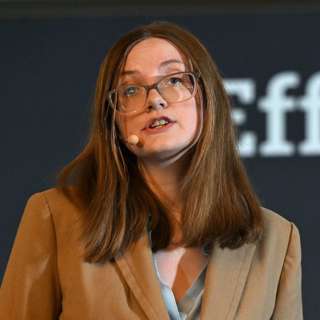
#207 – Sarah Eustis-Guthrie on why she shut down her charity, and why more founders should follow her lead
"I think one of the reasons I took [shutting down my charity] so hard is because entrepreneurship is all about this bets-based mindset. So you say, “I’m going to take a bunch of bets. I’m going to take some risky bets that have really high upside.” And this is a winning strategy in life, but maybe it’s not a winning strategy for any given hand. So the fact of the matter is that I believe that intellectually, but l do not believe that emotionally. And I have now met a bunch of people who are really good at doing that emotionally, and I’ve realised I’m just not one of those people. I think I’m more entrepreneurial than your average person; I don’t think I’m the maximally entrepreneurial person. And I also think it’s just human nature to not like failing." —Sarah Eustis-GuthrieIn today’s episode, host Luisa Rodriguez speaks to Sarah Eustis-Guthrie — cofounder of the now-shut-down Maternal Health Initiative, a postpartum family planning nonprofit in Ghana — about her experience starting and running MHI, and ultimately making the difficult decision to shut down when the programme wasn’t as impactful as they expected.Links to learn more, highlights, and full transcript.They cover:The evidence that made Sarah and her cofounder Ben think their organisation could be super impactful for women — both from a health perspective and an autonomy and wellbeing perspective.Early yellow and red flags that maybe they didn’t have the full story about the effectiveness of the intervention.All the steps Sarah and Ben took to build the organisation — and where things went wrong in retrospect.Dealing with the emotional side of putting so much time and effort into a project that ultimately failed.Why it’s so important to talk openly about things that don’t work out, and Sarah’s key lessons learned from the experience.The misaligned incentives that discourage charities from shutting down ineffective programmes.The movement of trust-based philanthropy, and Sarah’s ideas to further improve how global development charities get their funding and prioritise their beneficiaries over their operations.The pros and cons of exploring and pivoting in careers.What it’s like to participate in the Charity Entrepreneurship Incubation Program, and how listeners can assess if they might be a good fit.And plenty more.Chapters:Cold open (00:00:00)Luisa’s intro (00:00:58)The interview begins (00:03:43)The case for postpartum family planning as an impactful intervention (00:05:37)Deciding where to start the charity (00:11:34)How do you even start implementing a charity programme? (00:18:33)Early yellow and red flags (00:22:56)Proof-of-concept tests and pilot programme in Ghana (00:34:10)Dealing with disappointing pilot results (00:53:34)The ups and downs of founding an organisation (01:01:09)Post-pilot research and reflection (01:05:40)Is family planning still a promising intervention? (01:22:59)Deciding to shut down MHI (01:34:10)The surprising community response to news of the shutdown (01:41:12)Mistakes and what Sarah could have done differently (01:48:54)Sharing results in the space of postpartum family planning (02:00:54)Should more charities scale back or shut down? (02:08:33)Trust-based philanthropy (02:11:15)Empowering the beneficiaries of charities’ work (02:18:04)The tough ask of getting nonprofits to act when a programme isn’t working (02:21:18)Exploring and pivoting in careers (02:27:01)Reevaluation points (02:29:55)PlayPumps were even worse than you might’ve heard (02:33:25)Charity Entrepreneurship (02:38:30)The mistake of counting yourself out too early (02:52:37)Luisa’s outro (02:57:50)Producer: Keiran HarrisAudio engineering: Ben Cordell, Milo McGuire, Simon Monsour, and Dominic ArmstrongContent editing: Luisa Rodriguez, Katy Moore, and Keiran HarrisTranscriptions: Katy Moore
14 Marras 20242h 58min

Parenting insights from Rob and 8 past guests
With kids very much on the team's mind we thought it would be fun to review some comments about parenting featured on the show over the years, then have hosts Luisa Rodriguez and Rob Wiblin react to them. Links to learn more and full transcript.After hearing 8 former guests’ insights, Luisa and Rob chat about:Which of these resonate the most with Rob, now that he’s been a dad for six months (plus an update at nine months).What have been the biggest surprises for Rob in becoming a parent.How Rob's dealt with work and parenting tradeoffs, and his advice for other would-be parents.Rob's list of recommended purchases for new or upcoming parents.This bonus episode includes excerpts from:Ezra Klein on parenting yourself as well as your children (from episode #157)Holden Karnofsky on freezing embryos and being surprised by how fun it is to have a kid (#110 and #158)Parenting expert Emily Oster on how having kids affect relationships, careers and kids, and what actually makes a difference in young kids’ lives (#178)Russ Roberts on empirical research when deciding whether to have kids (#87)Spencer Greenberg on his surveys of parents (#183)Elie Hassenfeld on how having children reframes his relationship to solving pressing global problems (#153)Bryan Caplan on homeschooling (#172)Nita Farahany on thinking about life and the world differently with kids (#174)Chapters:Cold open (00:00:00)Rob & Luisa’s intro (00:00:19)Ezra Klein on parenting yourself as well as your children (00:03:34)Holden Karnofsky on preparing for a kid and freezing embryos (00:07:41)Emily Oster on the impact of kids on relationships (00:09:22)Russ Roberts on empirical research when deciding whether to have kids (00:14:44)Spencer Greenberg on parent surveys (00:23:58)Elie Hassenfeld on how having children reframes his relationship to solving pressing problems (00:27:40)Emily Oster on careers and kids (00:31:44)Holden Karnofsky on the experience of having kids (00:38:44)Bryan Caplan on homeschooling (00:40:30)Emily Oster on what actually makes a difference in young kids' lives (00:46:02)Nita Farahany on thinking about life and the world differently (00:51:16)Rob’s first impressions of parenthood (00:52:59)How Rob has changed his views about parenthood (00:58:04)Can the pros and cons of parenthood be studied? (01:01:49)Do people have skewed impressions of what parenthood is like? (01:09:24)Work and parenting tradeoffs (01:15:26)Tough decisions about screen time (01:25:11)Rob’s advice to future parents (01:30:04)Coda: Rob’s updated experience at nine months (01:32:09)Emily Oster on her amazing nanny (01:35:01)Producer: Keiran HarrisAudio engineering: Ben Cordell, Milo McGuire, Simon Monsour, and Dominic ArmstrongContent editing: Luisa Rodriguez, Katy Moore, and Keiran HarrisTranscriptions: Katy Moore
8 Marras 20241h 35min
